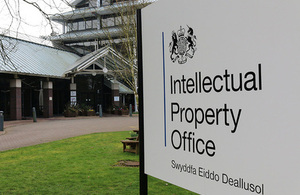Work begins for UK Health Security Agency to protect the nation
- The UK Health Security Agency (UKHSA), led by Dr Jenny Harries, launches today
- Health and Social Care Secretary Matt Hancock and UKHSA Chief Executive Dr Jenny Harries will visit Colindale laboratories to mark the occasion
- UK provides £4 million to the World Health Organization’s Contingency Fund for Emergencies
Dr Harries and the Health and Social Care Secretary, Matt Hancock, will visit Colindale, north London, to see the work being done to help the UK understand and respond to new variants of the virus causing COVID-19. These laboratories, which have been operating throughout the pandemic under Public Health England (PHE) leadership will transfer to the new UKHSA.
The new agency will work to protect the country from future health threats and ensure the nation can respond to pandemics quickly and at greater scale.
It will also work with global partners, becoming a mainstay of what the Prime Minister and other international leaders have called “a more robust international health architecture that will protect future generations.”
The UK has also confirmed a £4 million contribution to the World Health Organization’s (WHO) Contingency Fund for Emergencies (CFE). The purpose of the CFE is to give WHO the resources to quickly mount an effective response to disease outbreaks and humanitarian crises in developing countries and stop these health emergencies from spiralling out of control, saving lives.
Health and Social Care Secretary Matt Hancock said:
This is an important day as we launch the UK Health Security Agency to ensure that we protect the public and prepare for the next pandemic. The team working at UKHSA, expertly led by Dr Jenny Harries, will spend every day focussed on the current and future health threats facing our country so we are always ready for whatever is on the horizon.
Dr Jenny Harries, Chief Executive, UKHSA said:
It is a significant moment as the work of the UK Health Security Agency begins with a specific focus on pandemics and public health threats. We have learned so much from responding to COVID-19 and this is a brilliant opportunity to ensure these lessons can be applied in the future, with the scale and capacity needed to save lives and protect the public.
There is work to do right away as we continue our fight against COVID-19, even with the success of our vaccine programme so far, and the tentative steps we have made on the roadmap to return to normality. UKHSA will work with our regional, national and global partners to tackle this virus while ensuring we are ready to face future health challenges.
The primary focus for UKHSA in its initial phase of operation will be the continued fight against the COVID-19 pandemic.
It will bring together the country’s cutting-edge health security science capabilities, data analytics and genomic surveillance with at scale testing and contact tracing capability – combining key elements of Public Health England with NHS Test and Trace including the Joint Biosecurity Centre.
Formally established in April 2021, UKHSA will be chaired by Ian Peters, currently Chair of Barts Health NHS Trust and former Chief Executive of British Gas, Managing Director of NatWest Small Business Services, and chairman of several data driven growth technology companies.
The agency will lead on health protection and security activity for England, and will also take over from the PHE and NHS Test and Trace work those organisations already carry out on a UK basis, either as reserved functions or under collaborative arrangements with the Scottish, Welsh and Northern Ireland administrations – for example, the Joint Biosecurity Centre. It will not replace the public health agencies in the other 3 UK countries, but will operate a close collaborative relationship with them.
Public Health England and NHS Test and Trace will continue to operate during the transition to UKHSA.

